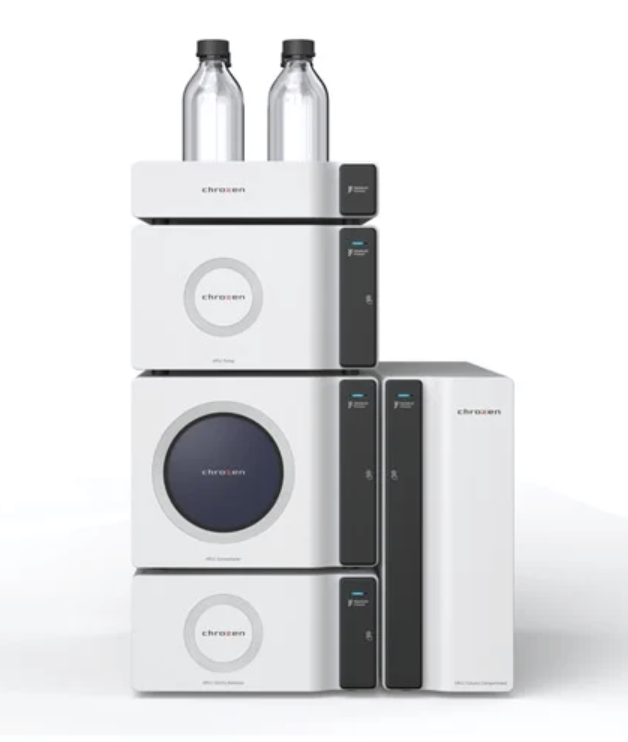Difference Between HPLC, LC-MS, GC, and ICP-MS
Posted by Maxi Scientific on May 24th 2023
The world of analytical chemistry thrives on a rich tapestry of techniques that enable scientists to decipher complex samples. Among the forefront champions of this realm are High-Performance Liquid Chromatography (HPLC), Liquid Chromatography-Mass Spectrometry (LC-MS), Gas Chromatography (GC), and Inductively Coupled Plasma Mass Spectrometry (ICP-MS). These versatile tools provide researchers with unparalleled capabilities for diverse applications, allowing for the precise and accurate analysis of compounds. In this captivating journey, we explore the distinctive attributes and applications of these techniques across various scientific domains.
High-Performance Liquid Chromatography (HPLC): HPLC, an enduring pillar of analytical chemistry, showcases its prowess in pharmaceuticals, environmental analysis, food and beverage, and forensic science. This technique excels at separating, identifying, and quantifying components within complex mixtures with remarkable resolution. In the pharmaceutical industry, HPLC ensures drug safety and efficacy through drug discovery, quality control, and formulation analysis. Environmental scientists employ HPLC to detect and quantify pollutants in air, water, and soil, contributing to ecosystem preservation. The food and beverage industry benefits from HPLC's ability to identify contaminants, additives, and natural compounds, ensuring consumer safety and product quality. Lastly, forensic scientists rely on HPLC to analyze biological samples, such as blood and urine, for drug testing or forensic investigations, serving the cause of justice.
Liquid Chromatography-Mass Spectrometry (LC-MS): Combining the separation capabilities of liquid chromatography with the molecular identification power of mass spectrometry, LC-MS emerges as an invaluable technique in proteomics, metabolomics, and drug metabolism studies. LC-MS enables researchers to identify and quantify thousands of compounds present in complex biological matrices. In the realm of proteomics, LC-MS aids in the identification and characterization of proteins, revolutionizing our understanding of diseases and targeted therapy design. Metabolomics harnesses LC-MS to profile and elucidate the metabolic fingerprints of biological systems, unveiling insights into disease mechanisms and biomarker discovery. Moreover, LC-MS plays a pivotal role in drug metabolism studies, illuminating the intricate processes through which drugs are processed and metabolized in the body, ultimately leading to advancements in drug design and personalized medicine.
Gas Chromatography (GC): GC, an analytical workhorse, dominates environmental analysis, food science, and forensic chemistry, excelling in the separation and analysis of volatile and semi-volatile compounds. Environmental scientists heavily rely on GC to detect and quantify pollutants such as pesticides, volatile organic compounds (VOCs), and industrial chemicals, facilitating risk assessment and pollution control strategies. In the food industry, GC enables the analysis of flavor compounds, detection of contaminants, and assessment of food quality and safety. GC also assumes a crucial role in forensic investigations by identifying illicit drugs, arson accelerants, and explosives, providing crucial evidence for law enforcement agencies to solve crimes and ensure justice.
Inductively Coupled Plasma Mass Spectrometry (ICP-MS): ICP-MS, a pinnacle of trace element analysis, stands out as a vital tool in environmental science, geology, and metallurgy, exhibiting unmatched sensitivity and selectivity. This technique allows researchers to quantify elements at trace levels in diverse matrices. Environmental scientists utilize ICP-MS to study elemental contamination, trace metal analysis in water, soil, and air, and assess the impact of pollutants on ecosystems. Geologists rely on ICP-MS to determine the composition of rocks, minerals, and trace metals, unraveling the Earth's history and resource exploration. In metallurgy, ICP-MS aids in material characterization, quality control, and the identification of trace impurities, ensuring the integrity of industrial processes and products.

